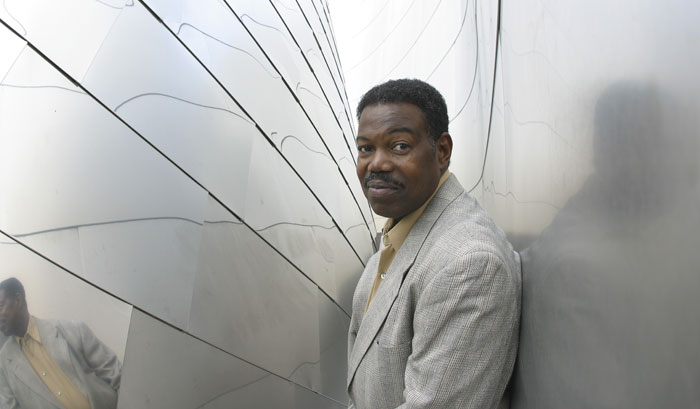


Over the past three-and-a-half decades, drummer Ndugu Chancler has played with such diverse musicians as Stanley Clarke, Miles Davis, George Duke, Herbie Hancock, John Lee Hooker, Michael Jackson, Quincy Jones, Flora Purim, Kenny Rogers, Santana, Frank Sinatra, Donna Summer, Tina Turner, Weather Report, and Frank Zappa.
Some musicians wait decades for that first big break-but for Chancler, the moment came while he was still in high school, when legendary Latin jazz bandleader Willie bobo recruited him for his club band.
"The guys in Willie's band kind of raised me," Chancler recalls. "I was only sixteen-too young to be in the clubs. But they'd say I was their son or their little brother. Man, I can't tell you how much I got that I never would have gotten from any kind of formalized training."
The quality, the craftsmanship, and the integrity behind the drums speak for themselves.
The experience did more than kick-start Ndugu's career. "It got me into playing percussion, first off," he explains, "and it gave me a concept of the relationships between the drums and timbales. Willie played backbeats on the timbales, which was kind of a link between Latin and R&B. He was playing music that was a lot more commercial and more accessible than some straight Latin bands."
But the young Ndugu's diverse musical training was just beginning. Around the same time, he joined Gerald Wilson's big band. "Gerald had played with Jimmie Lunceford's band- that's going back really far," he says. "harold Land was also in Gerald's band. Now, Harold was the saxophonist with the Clifford Brown/Max roach group, and he schooled me on the whole bebop thing."
Another early influence, says Chancler, was Crusaders drummer Stix Hooper. "He got me hip to recording. The Crusaders came from straight-ahead jazz, but then they started playing the funk. So I think my pop influence came from enjoying that music, then eventually playing with Santana. Even though Santana was not a standard pop band, we were exposed to a lot of other bands that were playing pop."
But Ndugu says his heaviest gig of all was a 1971 tour with Miles Davis. "It was the most frightening experience I've ever had. I had to replace Jack DeJohnette, who was and always will be one of my heroes. At that age, I wasn't confident I could fill those shoes. So what I learned from that experience was developing self-confidence. Some nights we were smoking, but I hadn't found my formula yet for consistency."
Ironically, it was jazz legend Davis who cemented Ndugu's interest in new, non-jazz sounds. "Miles would say, 'listen to Buddy Miles, Jimi Hendrix, the Chambers Brothers.' That gave validity to the vastness and breadth of all the things I'd been listening to, and opened me up conceptually from just being a jazz player to playing good music in general."
Chancler has played Yamaha drums since 1974. "Yamaha believed in me, and they've worked with me to develop new products," he explains. "They listened to and experimented with all my ideas. And their products just keep getting better and better. They keep changing, just as we keep changing as musicians. The quality, craftsmanship, and integrity behind the drums speak for themselves. That's why I've stayed with Yamaha for so long."
One Chancler/Yamaha innovation was his signature snare drum. "I wanted something that was traditional, but that I could also use in new forms of music," explains Ndugu. "In funk and rock music, steel snares give you the crack you need. But the problem with most steel snares is there's too much ping or over-ring. So we added powder-coated enamel on the shell, which muffles that down. I had been playing a Yamaha jacaranda-wood snare with die-cast hoops-i used that with Kenny Rogers, Lionel Richie, and on Michael Jackson's 'Billie Jean.' So I made sure my signature snare had a counter-hoop designed so I could do that same pop rimshot I used on all those records. I wanted to create something that could do that, and also give me the jazz thing."
"It's ironic," Chancler says, reflecting on his "Billie Jean" performance, which became one of the most iconic drum parts of all time. "For all the drums I've played with everybody else, that was the simplest I'd ever played, and the largest seller."
And the conclusion is? "Do it all!" he laughs. "There will be a time and place for you to do whatever you do. Just learn to be in control and disciplined enough to know when to do it."
























